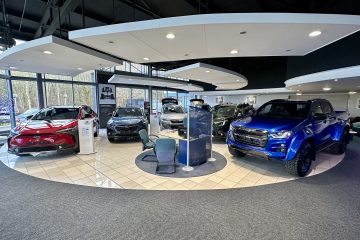Rising energy prices could lead to a fall in the sales of new electric vehicles (EVs), according to a survey by Venson Automotive Solutions.
A total of 300 UK motorists were polled, with results revealing that the anticipated 54% rise in electricity and gas bills next month is impacting car buyers’ decisions on switching to EVs. Although hybrid, plug-in hybrid and battery-electric vehicles accounted for more than a third of the UK’s new-car registrations last month, Venson’s survey showed that a third of motorists currently exploring an EV for their next car, will now research more thoroughly the costs associated with charging it before committing.
The news comes as rising nickel prices could cause a headache for carmakers. With many sourcing supplies from Russia, and now cancelling contracts due to the country’s invasion of Ukraine, costs for the commodity, found in EV batteries, may mean higher prices at the dealership. With these vehicles already costing more than their petrol and diesel counterparts, it may be that OEMs will need to absorb the increased costs, or pass them on and risk further EV sales drop.
Fuel prices rising
It is not just electricity costs that are causing concern for motorists. One in four of those currently driving an internal combustion engine (ICE) vehicle, confirmed to Venson that petrol prices are noticeably pulling on purse strings.
To counter rising ownership costs, 22% of those surveyed said that they will be trying to change their driving behaviour to help reduce their overall ICE fuel consumption in light of the energy price rises, including reducing their speed, number of journeys taken and engine idling in order to save pounds at the pump.
“As with home fuel energy increases, the growing cost per mile will hit us all, regardless of the type of vehicle we drive,” says Alison Bell, Operations Director for Venson Automotive Solutions. “However, whilst those considering buying an EV may fear that global energy price rises will cost them dearly at the charging point, just 3% of motorists we surveyed who today own and drive an EV, expressed any cost concerns.
“The reality is that it costs half the price of an ICE full tank to fully charge an EV battery, and with both electricity and petrol prices rising, this is likely to remain true for the foreseeable future. Research of some of the best-selling EVs, including the Tesla Model 3, Kia e-Niro, Volkswagen ID.4 and Nissan Leaf, confirm EV owners will still make savings.”
To boost consumer confidence in the financial viability of switching to electric amidst rising energy prices and prevent an EV sales drop, Venson backs calls for an extension of tax breaks and subsidies for EV buyers and the continuation of the Electric Vehicle Homecharge Scheme (EVHS), due to end in April.
Venson has recently published a free white paper ‘Living with your electric vehicle’, which outlines the payment and charging options available today.



